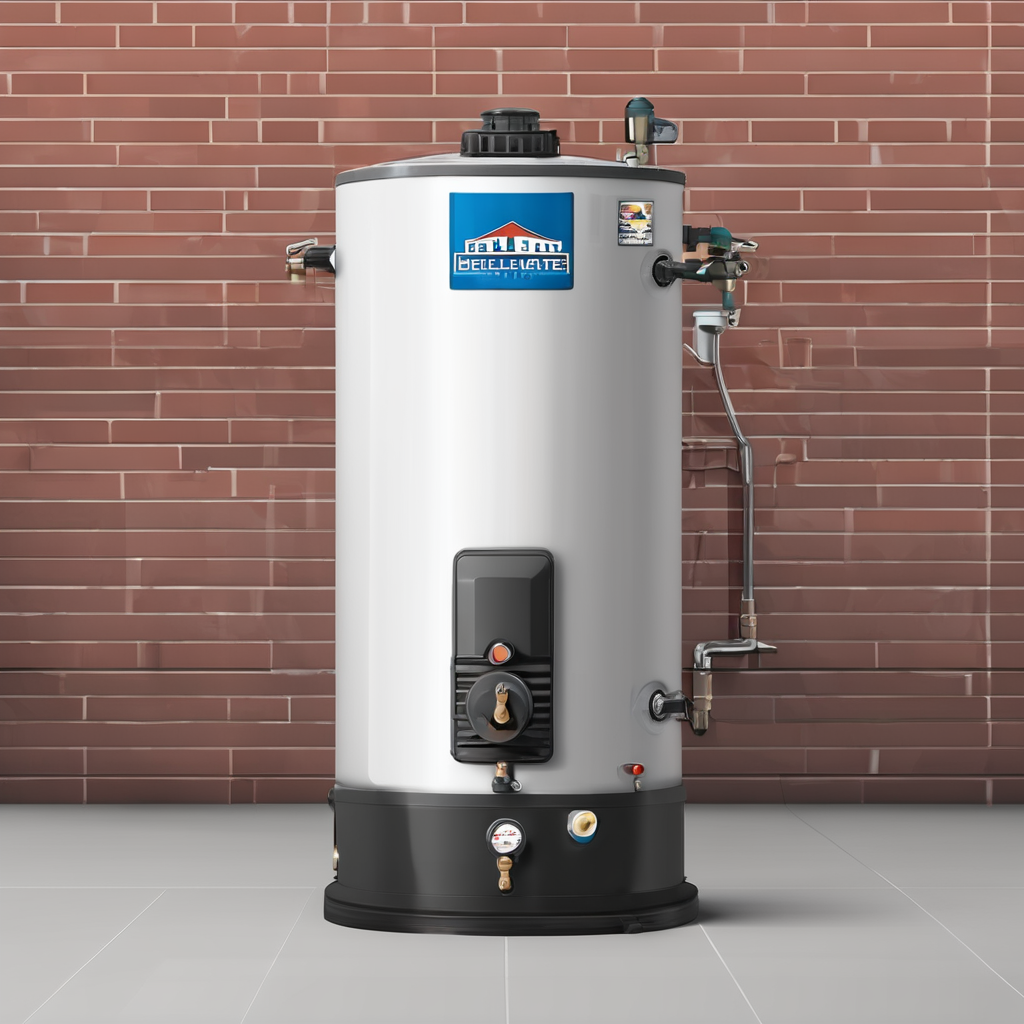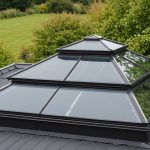Essential considerations before choosing a UV filtration system for your UK aquarium
Selecting an appropriate UV filtration system for your aquarium in the UK requires understanding the basics of how UV filtration works and why it’s beneficial. UV filters operate by exposing aquarium water to ultraviolet light, which destroys harmful microorganisms such as bacteria, algae, and parasites. This process improves water clarity and helps maintain a healthier aquatic environment, essential for both freshwater and marine tanks.
When choosing a system, key factors include the size of your aquarium, the type of water (freshwater versus marine), and the specific species of fish you keep. Larger tanks require higher wattage UV bulbs and increased flow rates to ensure effective sterilization of water throughout the system. Marine aquariums often demand more robust UV filtration to counteract pathogens that thrive in saltwater conditions. Meanwhile, certain fish species might be more sensitive to changes in water quality or flow, influencing your choice of aquarium equipment.
Also to read : Designing tranquil retreats: an in-depth guide to building gardens for autistic kids in the uk
UK water conditions also play a significant role. Many areas have hard water with high mineral content, which can affect UV filter performance and maintenance frequency. Assessing your local water chemistry helps determine the compatibility and efficiency of the UV filtration system. For example, water hardness may cause quicker buildup on quartz sleeves, reducing light penetration and necessitating more frequent cleaning.
In summary, understanding UV filter basics and evaluating tank-specific factors combined with UK water quality considerations will guide aquarists to make an informed choice on UV filtration system selection in the UK. This thorough approach ensures effective water sterilization, promoting healthier aquatic life and clearer tanks.
This might interest you : Enhance your home’s comfort: essential diy window insulation techniques for uk residents
Essential considerations before choosing a UV filtration system for your UK aquarium
When selecting a UV filtration system in the UK, it is crucial to understand the basic principles of UV filtration and its benefits. UV filtration works by passing aquarium water through a chamber containing a UV light source that inactivates harmful microorganisms such as bacteria, algae, and parasites. This process helps maintain clear water, reduces disease risks, and supports overall fish health.
Key factors influencing your choice include the tank size, type of water (freshwater or marine), and the fish species you keep. Larger tanks require UV filters with higher wattage and appropriate flow rates to ensure effective exposure time to UV light. For instance, a 100-litre freshwater aquarium will need a different UV filter compared to a 200-litre marine setup because marine tanks often demand higher filtration standards due to saltwater’s complexity. Moreover, delicate or disease-prone fish species may benefit from increased sanitation levels that an adequate UV system provides.
Considering UK water conditions is equally important. The UK’s tap water varies regionally in hardness and mineral content, which may impact the UV system’s efficiency and lifespan. Hard water can cause mineral buildup on the UV sleeve, reducing light transmission and effectiveness. Choosing a UV filter designed to accommodate local water chemistry can optimize performance and maintenance intervals. Additionally, ensuring compatibility with your existing aquarium equipment, like pumps and mechanical filters, guarantees smooth integration and maximizes overall filtration efficiency.
By carefully weighing these elements—how UV filtration functions, your tank specifics, and UK water quality—you can select a UV filtration system that best suits your aquarium, fostering a healthier aquatic environment.
Reviewing top UV filtration systems available in the UK market
When exploring UK UV filter reviews, it’s essential to focus on models that combine effective sterilization with ease of maintenance and reliability. The best aquarium UV sterilizers in the UK often feature adjustable flow rates and are compatible with a range of aquarium sizes, catering to both freshwater and marine setups. Popular UV system brands UK include those known for durable construction and efficient UV bulbs, ensuring optimal pathogen control.
A side-by-side comparison reveals key differences in wattage, lamp lifespan, and sleeve materials. For example, some top models provide quartz sleeves resistant to mineral buildup, which is particularly advantageous given the UK’s hard water in many regions. Supplier reliability is also crucial; reputable UK distributors offer solid warranties and responsive customer support, helping aquarists tackle any technical issues quickly.
Pros of leading UV filtration systems include enhanced water clarity and reduced disease risk, while cons may involve initial setup complexity or the need for more frequent cleaning in areas with high water hardness. Choosing a system from trusted UK UV filter reviews ensures aquarists invest in equipment that balances performance with practical considerations.
Essential considerations before choosing a UV filtration system for your UK aquarium
Selecting the right UV filtration system in the UK demands a clear grasp of UV filter basics and how they interact with your aquarium setup. Fundamentally, UV filtration uses ultraviolet light to neutralize microorganisms, improving water clarity and reducing disease-causing agents. However, effectiveness depends heavily on factors like tank size, water type, and fish species.
When considering tank size, the system must deliver sufficient UV exposure for the entire volume. For example, a 150-litre freshwater aquarium requires a UV filter with adequate wattage and housing dimensions to slow water flow, ensuring pathogens receive enough UV dose. Increasing wattage alone isn’t enough without matching flow rate since water passing too quickly under UV light reduces sterilization efficiency.
Water type plays a significant role as well. Marine tanks generally demand higher-performance UV systems compared to freshwater due to saltwater’s unique biological challenges including specific pathogens and algae types. UV systems designed for marine use typically feature corrosion-resistant components and optimized flow designs to handle these conditions safely.
Fish species sensitivity further shapes UV system selection. Some fish tolerate higher flow rates and slightly variable water quality, while delicate or disease-prone species benefit greatly from stable, intensified UV sterilization to prevent infections. Tailoring your UV filtration system to the biology of your fish maximizes health benefits.
UK water conditions require scrutiny too. Regional variations in hardness and mineral content influence UV system efficiency. For instance, hard water often causes rapid mineral deposits on the UV lamp sleeve, impairing light penetration and necessitating frequent cleaning to maintain performance. Choosing aquarium equipment with easy-maintenance sleeve designs or protective coatings helps counteract this issue.
Compatibility with existing filtration and pumps also affects system performance. The UV unit must integrate smoothly, preserving proper flow rates and ensuring no mechanical disruptions. Consulting aquarium equipment advice specific to your setup supports optimal selection and installation.
In summary, combining knowledge of UV filter basics with precise evaluation of tank size, water type, fish species, and UK water chemistry enables informed UV filtration system selection in the UK. This thoughtful approach sustains aquarium health and water clarity effectively.
Reviewing top UV filtration systems available in the UK market
When considering the best aquarium UV sterilizers in the UK, it is important to rely on thorough UK UV filter reviews to evaluate models that combine sterilization efficacy with user-friendly features. Leading UV system brands UK offer a range of products tailored for various aquarium sizes and types, incorporating adjustable flow rates and durable components designed to handle local water conditions, such as hard water common in many UK regions.
Key features to compare include UV bulb wattage, lamp lifespan, and the quality of the quartz sleeve material. Quartz sleeves resistant to mineral deposits are particularly valuable in the UK, where water hardness can impair UV light transmission. This resistance reduces maintenance frequency and helps maintain consistent sterilization performance. Additionally, many top UK brands feature robust construction and compatibility with both freshwater and marine tanks, addressing diverse aquarist needs.
Supplier reliability is another critical factor highlighted in UK UV filter reviews. Established distributors provide dependable warranties and responsive customer support, which can be pivotal for troubleshooting and securing replacement parts. While advantages of these premiuм UV filtration systems include enhanced water clarity and reduced disease risk, potential drawbacks may involve the initial setup complexity or maintenance demands in areas with high mineral content.
Choosing from recommended UK UV filter reviews allows aquarists to select UV filtration systems that balance practical considerations with performance, ensuring a trustworthy solution that optimizes aquarium health and water quality.
Essential considerations before choosing a UV filtration system for your UK aquarium
Selecting the right UV filtration system in the UK hinges on understanding core UV filter basics to ensure the system effectively sterilizes water. UV filtration works by passing aquarium water past a UV light source, which neutralizes microorganisms like bacteria and algae that degrade water quality and jeopardize fish health. Knowing this mechanism clarifies why proper sizing and flow rates are critical for maximum impact.
UV filtration system selection UK depends heavily on the tank’s volume and water composition. For instance, a 100-litre freshwater aquarium requires a UV sterilizer with lower wattage and slower flow compared to a 200-litre marine tank, which demands higher wattage UV bulbs and corrosion-resistant materials due to saltwater’s harsher nature. Accurate sizing ensures water passes at a rate allowing sufficient UV exposure time, preventing ineffective sterilization caused by rapid water flow.
Fish species also profoundly influence UV filter choice. Sensitive or disease-prone varieties benefit from systems providing stable sterilization, minimizing infection risks. Conversely, robust species may tolerate moderate filtration, letting hobbyists prioritize energy efficiency and maintenance ease. Aquarium equipment advice often stresses matching UV filters not just to tank size but to inhabitant needs to optimize health outcomes.
UK water conditions pose additional challenges. Many regions have hard water rich in minerals, leading to faster buildup on quartz sleeves. This accumulation reduces UV light transmission, impairing sterilization effectiveness unless sleeves are cleaned regularly or constructed from anti-fouling materials. Selecting a system compatible with local water chemistry helps maintain consistent performance and reduces service frequency. Integrating UV units with existing pumps and filters, guided by trusted aquarium equipment advice, ensures proper flow and compatibility, preventing mechanical issues and preserving water circulation.
In sum, thoughtful UV filtration system selection UK requires a nuanced assessment of basic UV principles, tank size, freshwater or marine conditions, specific fish needs, and local water chemistry. Addressing these interconnected factors guarantees your investment enhances aquatic health and water clarity reliably.
Essential considerations before choosing a UV filtration system for your UK aquarium
When focusing on UV filtration system selection UK, a clear grasp of UV filter basics is essential to make sure your aquarium benefits fully. UV filtration inactivates harmful microorganisms by passing water through ultraviolet light, improving water clarity and reducing disease risks. The effectiveness of this process depends not only on having a UV source but also on matching the system’s specifications to your aquarium’s unique demands.
One of the first considerations is tank size. The UV system must deliver appropriate wattage and flow rate so that every litre of water receives sufficient UV exposure time. For example, a small freshwater tank around 100 litres might need a 9-watt bulb with slower flow, whereas a larger marine setup over 200 litres demands stronger UV lamps and possibly corrosion-resistant parts to withstand saltwater conditions. Addressing compatibility with water type is crucial because marine aquariums experience distinct biological challenges that require durable and efficient filtration components.
Fish species also play a significant role in aquarium equipment advice for UV filtration. Species prone to infections or stressed by water quality fluctuations benefit from consistent, thorough sterilization, which may mean selecting a UV filter capable of maintaining stable and intense UV exposure. Conversely, hardier species might allow for systems prioritizing ease of maintenance and energy efficiency.
UK water characteristics are a fundamental factor in UV filtration system selection UK. The prevalence of hard water in many areas contributes to mineral buildup on quartz sleeves, diminishing UV light transmission and sterilization effectiveness. To counter this, selecting UV filters with sleeves designed to resist or minimize deposits helps sustain performance. Regular monitoring and maintenance tailored to local water chemistry prevent efficiency losses and extend system lifespan.
Finally, integration with existing aquarium equipment affects filtration dynamics. Ensuring the UV unit’s flow requirements align with your current pump and filter setup optimizes sterilization without disrupting water circulation. Following trusted aquarium equipment advice when pairing components supports consistent water quality and smooth operation.
Essential considerations before choosing a UV filtration system for your UK aquarium
Choosing the right UV filtration system selection UK begins with understanding the fundamental UV filter basics. UV filtration neutralizes harmful microorganisms by exposing aquarium water to ultraviolet light, which stops bacteria, algae, and parasites from proliferating, thereby maintaining clearer, healthier water. The efficiency of this process depends heavily on the system’s specifications matching the aquarium’s unique requirements.
Critical factors include tank size, water type, and fish species. Accurate UV filtration system selection UK involves selecting a UV sterilizer with the correct wattage and flow rate appropriate for your tank volume—too fast a flow reduces UV exposure time, diminishing sterilization. Freshwater systems typically require lower wattage than marine setups, which often need corrosion-resistant materials due to saltwater’s harsher environment. Likewise, fish species sensitive to infections demand stable, effective UV sterilization, making system sizing and flow control paramount.
Considering UK water conditions is essential in this decision. Hard water prevalent across much of the UK contains minerals that cause buildup on quartz sleeves, reducing UV transmission and filtration efficiency. Choosing UV systems with sleeves designed for easy cleaning or resistant to mineral deposits can preserve performance. Moreover, integrating your UV filtration system smoothly with existing aquarium equipment advice—such as compatible pumps and mechanical filters—ensures stable water flow and filtration synergy.
In summary, informed UV filtration system selection UK requires balancing the UV filter basics with tank specifics and local water chemistry. Tailoring these elements results in effective sterilization, supporting optimal aquarium health.



